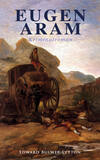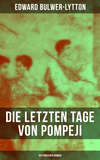Kitabı oku: «Athens: Its Rise and Fall, Complete», sayfa 22
But the first requires as intense a study as the last; and they who talk of the savage and untutored genius of Aeschylus, are no wiser than the critics who applied the phrase of “native wood-notes wild” to the consummate philosophy of “Hamlet,” the anatomical correctness of “Othello,” the delicate symmetry of “The Tempest.” With respect to the language of Aeschylus, ancient critics unite with the modern in condemning the straining of his metaphors, and the exaggeration of his images; yet they appear to me a necessary part of his genius, and of the effect it produces. But nothing can be more unsatisfactory and inconclusive than the theory of Schlegel, that such metaphors and images, such rugged boldness and irregular fire, are the characteristics of a literature in its infancy. On the contrary, as we have already seen, Phrynichus, the predecessor of Aeschylus, was as much characterized by sweetness and harmony, as Aeschylus by grandeur and headlong animation. In our own time, we have seen the cold classic school succeeded by one full of the faults which the German, eloquent but superficial, would ascribe to the infancy of literature. The diction of Aeschylus was the distinction of himself, and not of his age; if it require an apology, let us not seek it in false pretences; if he had written after Euripides, his diction would have been equally startling, and his metaphors equally lofty. His genius was one of those which, in any age, can form an era, and not that which an era necessarily forms. He might have enriched his music from the strains of the Dorian lyres, but he required only one poet to have lived before him. The rest of the Greek dramatists required Aeschylus—Aeschylus required only Homer.
The POET is, indeed, the creator, not of images solely, but of men— not of one race of ideas and characters, but of a vast and interminable posterity scattered over the earth. The origin of what wonderful works, in what distant regions, in what various time, may be traced, step by step, from influence to influence, till we arrive at Homer! Such is the vitality of genius. The true spiritual transmigrator—it passes through all shapes—losing identity, but not life—and kindred to the GREAT INTELLIGENCE, which is the soul of matter—departing from one form only to animate another.
CHAPTER III
Aristides.—His Character and Position.—The Rise of Themistocles.– Aristides is Ostracised.—The Ostracism examined.—The Influence of Themistocles increases.—The Silver-mines of Laurion.—Their Product applied by Themistocles to the Increase of the Navy.—New Direction given to the National Character.
I. While the progress of the drama and the genius of Aeschylus contributed to the rising renown of Athens, there appeared on the surface of her external affairs two rival and principal actors, of talents and designs so opposite, that it soon became evident that the triumph of one could be only in the defeat of the other. Before the battle of Marathon, Aristides had attained a very considerable influence in Athens. His birth was noble—his connexions wealthy—his own fortune moderate. He had been an early follower and admirer of Clisthenes, the establisher of popular institutions in Athens after the expulsion of the Pisistratidae, but he shared the predilection of many popular chieftains, and while opposing the encroachments of a tyranny, supported the power of an aristocracy. The system of Lycurgus was agreeable to his stern and inflexible temper. His integrity was republican—his loftiness of spirit was patrician. He had all the purity, the disinterestedness, and the fervour of a patriot—he had none of the suppleness or the passion of a demagogue; on the contrary, he seems to have felt much of that high-spirited disdain of managing a people which is common to great minds conscious that they are serving a people. His manners were austere, and he rather advised than persuaded men to his purposes. He pursued no tortuous policy, but marched direct to his object, fronting, and not undermining, the obstacles in his path. His reputation for truth and uprightness was proverbial, and when some lines in Aeschylus were recited on the stage, implying that “to be, and not to seem, his wisdom was,” the eyes of the spectators were fixed at once upon Aristides. His sternness was only for principles—he had no harshness for men. Priding himself on impartiality between friends and foes, he pleaded for the very person whom the laws obliged him to prosecute; and when once, in his capacity of arbiter between two private persons, one of the parties said that his opponent had committed many injuries against Aristides, he rebuked him nobly: “Tell me not,” he said, “of injuries against myself, but against thee. It is thy cause I am adjudging, and not my own.” It may be presumed, that with these singular and exalted virtues, he did not seek to prevent the wounds they inflicted upon the self-love of others, and that the qualities of a superior mind were displayed with the bearing of a haughty spirit. He became the champion of the aristocratic party, and before the battle of Marathon he held the office of public treasurer. In this capacity Plutarch asserts that he was subjected to an accusation by Themistocles, and even intimates that Themistocles himself had been his predecessor in that honourable office 31. But the youth of Themistocles contradicts this statement; and though his restless and ambitious temper had led him already into active life, and he might have combined with others more influential against Aristides, it can scarcely be supposed that, possessing no advantages of birth, he rose into much power or distinction, till he won sudden and popular applause by his gallantry at Marathon.
II. Themistocles was of illegitimate birth, according to the Athenian prejudice, since his mother was a foreigner. His father, though connected with the priestly and high-born house of the Lycomedae, was not himself a Eupatrid. The young Themistocles had many of the qualities which the equivocal condition of illegitimacy often educes from active and stirring minds—insolence, ostentation, the desire to shine, and the invincible ambition to rise. He appears, by a popular tale, to have early associated with his superiors, and to have evinced betimes the art and address which afterward distinguished him. At a meeting of all the illegitimate youths assembled at the wrestling-ring at Cynosarges, dedicated to Hercules, he persuaded some of the young nobles to accompany him, so as to confound as it were the distinction between the legitimate and the baseborn. His early disposition was bold, restless, and impetuous. He paid little attention to the subtleties of schoolmen, or the refinements of the arts; but even in boyhood devoted himself to the study of politics and the arts of government. He would avoid the sports and occupations of his schoolfellows, and compose declamations, of which the subject was the impeachment or defence of some of his young friends. His dispositions prophesied of his future career, and his master was wont to say, “that he was born to be a blessing or a curse to the commonwealth.” His strange and precocious boyhood was followed by a wild and licentious youth. He lived in extremes, and alternated between the loosest pleasures 32 and the most daring ambition. Entering prematurely into public life, either his restless disposition or his political principles embroiled him with men of the highest rank. Fearless and sanguine, he cared not whom he attacked, or what he adventured; and, whatever his conduct before the battle of Marathon, the popular opinions he embraced could not but bring him, after that event, in constant opposition to Aristides, the champion of the Areopagus.
That splendid victory which gave an opening to his career sharpened his ambition. The loud fame of Miltiades, yet unconscious of reverse, inspired him with a lofty envy. He seems from that period to have forsaken his more youthful excesses. He abstained from his wonted pursuits and pleasures—he indulged much in solitary and abstracted thought—he watched whole nights. His friends wondered at the change, and inquired the cause. “The trophies of Miltiades,” said he, “will not suffer me to sleep.” From these meditations, which are common to most men in the interval between an irregular youth and an aspiring manhood, he soon seems to have awakened with fixed objects and expanded views. Once emerged from the obscurity of his birth, his success was rapid, for he possessed all the qualities which the people demanded in a leader—not only the talents and the courage, but the affability and the address. He was an agreeable and boon companion— he committed to memory the names of the humblest citizens—his versatility enabled him to be all things to all men. Without the lofty spirit and beautiful mind of Pericles, without the prodigal but effeminate graces of Alcibiades—without, indeed, any of their Athenian poetry in his intellectual composition, he yet possessed much of their powers of persuasion, their ready talent for business, and their genius of intrigue. But his mind, if coarser than that of either of his successors, was yet perhaps more masculine and determined; nothing diverted him from his purpose—nothing arrested his ambition. His ends were great, and he associated the rise of his country with his more selfish objects, but he was unscrupulous as to his means. Avid of glory, he was not keenly susceptible to honour. He seems rather not to have comprehended, than comprehending, to have disdained the limits which principle sets to action. Remarkably far-sighted, he possessed, more than any of his contemporaries, the prophetic science of affairs: patient, vigilant, and profound, he was always energetic, because always prepared.
Such was the rival of Aristides, and such the rising leader of the popular party at Athens.
III. History is silent as to the part taken by Aristides in the impeachment of Miltiades, but there is no reason to believe that he opposed the measure of the Alcmaeonid party with which he acted, and which seems to have obtained the ascendency after the death of Miltiades. In the year following the battle of Marathon, we find Aristides in the eminent dignity of archon. In this office he became generally known by the title of the Just. His influence, his official rank, the power of the party that supported him, soon rendered him the principal authority of Athens. The courts of the judges were deserted, every litigant repaired to his arbitration—his administration of power obtained him almost the monopoly of it. Still, however, he was vigorously opposed by Themistocles and the popular faction led by that aspiring rival.
By degrees; various reasons, the chief of which was his own high position, concurred to diminish the authority of Aristides; even among his own partisans he lost ground, partly by the jealousy of the magistrates, whose authority he had superseded—and partly, doubtless, from a maxim more dangerous to a leader than any he can adopt, viz., impartiality between friends and foes in the appointment to offices. Aristides regarded, not the political opinions, but the abstract character or talents, of the candidates. With Themistocles, on the contrary, it was a favourite saying, “The gods forbid that I should be in power, and my friends no partakers of my success.” The tendency of the first policy is to discontent friends, while it rarely, if ever, conciliates foes; neither is it so elevated as it may appear to the superficial; for if we contend for the superiority of one set of principles over another, we weaken the public virtue when we give equal rewards to the principles we condemn as to the principles we approve. We make it appear as if the contest had been but a war of names, and we disregard the harmony which ought imperishably to exist between the opinions which the state should approve and the honours which the state can confer. He who is impartial as to persons must submit to seem lukewarm as to principles. Thus the more towering and eminent the seeming power of Aristides, the more really hollow and insecure were its foundations. To his own party it was unproductive— to the multitude it appeared unconstitutional. The extraordinary honours he had acquired—his monopoly of the magistrature—his anti-popular opinions, could not but be regarded with fear by a people so jealous of their liberties. He seemed to their apprehensions to be approaching gradually to the sovereignty of the state—not, indeed, by guards and military force, but the more dangerous encroachments of civil authority. The moment for the attack arrived. Themistocles could count at last upon the chances of a critical experiment, and Aristides was subjected to the ordeal of the ostracism.
IV. The method of the ostracism was this:—each citizen wrote upon a shell, or a piece of broken earthenware, the name of the person he desired to banish. The magistrates counted the shells, and if they amounted to six thousand (a very considerable proportion of the free population, and less than which rendered the ostracism invalid), they were sorted, and the man whose name was found on the greater number of shells was exiled for ten years, with full permission to enjoy his estates. The sentence was one that honoured while it afflicted, nor did it involve any other accusation than that of being too powerful or too ambitious for the citizen of a free state. It is a well-known story, that, during the process of voting, an ignorant burgher came to Aristides, whose person he did not know, and requested him to write down the name of Aristides.
“Has he ever injured you?” asked the great man.
“No,” answered the clown, “nor do I know him even by sight; but it vexes me to hear him everywhere called the ‘Just.’”
Aristides replied not—he wrote his own name on the shell, and returned it to the enlightened voter. Such is a tale to which more importance than is its due has been attached. Yet perhaps we can give a new reading to the honest burgher’s reply, and believe that it was not so expressive of envy at the virtue, as of fear at the reputation. Aristides received the sentence of exile (B. C. 483) with his accustomed dignity. His last words on leaving his native city were characteristic of his generous and lofty nature. “May the Athenian people,” he said, “never know the day which shall force them to remember Aristides!”—A wish, fortunately alike for the exile and the people, not realized. That day, so patriotically deprecated, soon came, glorious equally to Athens and Aristides, and the reparation of wrong and the triumph of liberty found a common date.
The singular institution of the ostracism is often cited in proof of the ingratitude of a republic, and the fickleness of a people; but it owed its origin not to republican disorders, but to despotic encroachment—not to a people, but to a tyrant. If we look throughout all the Grecian states, we find that a tyranny was usually established by some able and artful citizen, who, attaching himself either to the aristocratic, or more frequently to the popular party, was suddenly elevated into supreme power, with the rise of the faction he had espoused. Establishing his fame by popular virtues, he was enabled often to support his throne by a moral authority—more dangerous than the odious defence of military hirelings: hence necessarily arose among the free states a jealousy of individuals, whose eminence became such as to justify an undue ambition; and hence, for a long period, while liberty was yet tender and insecure, the (almost) necessity of the ostracism.
Aristotle, who laments and condemns the practice, yet allows that in certain states it was absolutely requisite; he thinks the evil it is intended to prevent “might have been provided for in the earlier epochs of a commonwealth, by guarding against the rise of one man to a dangerous degree of power; but where the habits and laws of a nation are so formed as to render it impossible to prevent the rise, you must then guard against its consequences:” and in another part of his Politics he observes, “that even in republics, where men are regarded, not according to their wealth, but worth—where the citizens love liberty and have arms and valour to defend it; yet, should the pre-eminent virtues of one man, or of one family, totally eclipse the merit of the community at large, you have but two choices—the ostracism or the throne.”
If we lament the precaution, we ought then to acknowledge the cause. The ostracism was the creature of the excesses of the tyrannical, and not of the popular principle. The bland and specious hypocrisy of Pisistratus continued to work injury long after his death—and the ostracism of Aristides was the necessary consequence of the seizure of the citadel. Such evil hath arbitrary power, that it produces injustice in the contrary principles as a counterpart to the injustice of its own; thus the oppression of our Catholic countrymen for centuries resulted from the cruelties and persecutions of a papal ascendency. We remembered the danger, and we resorted to the rigid precaution. To guard against a second tyranny of opinion, we condemned, nor perhaps without adequate cause, not one individual, but a whole sect, to a moral ostracism. Ancient times are not then so opposite to the present—and the safety of the state may excuse, in a republic as in a monarchy, a thousand acts of abstract injustice. But the banishment of Aristides has peculiar excuses in the critical circumstances of the time. The remembrance of Pisistratus was still fresh—his son had but just perished in an attempt on his country—the family still lived, and still menaced: the republic was yet in its infancy—a hostile aristocracy within its walls—a powerful enemy still formidable without. It is a remarkable fact, that as the republic strengthened, and as the popular power increased, the custom of ostracism was superseded. The democratic party was never so strong as at the time in which it was finally abolished. It is the insecurity of power, whether in a people or a king, that generates suspicion. Habituated to liberty, a people become less rigid and more enlightened as to its precautions.
V. It had been a saying of Aristides, “that if the Athenians desired their affairs to prosper, they ought to fling Themistocles and himself into the barathrum.” But fortune was satisfied at this time with a single victim, and reserved the other for a later sacrifice. Relieved from the presence of a rival who had constantly crossed and obstructed his career, Themistocles found ample scope for his genius. He was not one of those who are unequal to the situation it costs them so much to obtain. On his entrance into public life he is said by Theophrastus to have possessed only three talents; but the account is inconsistent with the extravagance of his earlier career, and still more with the expenses to which a man who attempts to lead a party is, in all popular states, unavoidably subjected. More probably, therefore, it is said of him by others, that he inherited a competent patrimony, and he did not scruple to seize upon every occasion to increase it, whether through the open emolument or the indirect perquisites of public office. But, desiring wealth as a means, not an end, he grasped with one hand to lavish with the other. His generosity dazzled and his manners seduced the people, yet he exercised the power he acquired with a considerate and patriotic foresight. From the first retreat of the Persian armament he saw that the danger was suspended, and not removed. But the Athenians, who shared a common Grecian fault, and ever thought too much of immediate, too little of distant peril, imagined that Marathon had terminated the great contest between Asia and Europe. They forgot the fleets of Persia, but they still dreaded the galleys of Aegina. The oligarchy of that rival state was the political enemy of the Athenian demos; the ally of the Persian was feared by the conqueror, and every interest, military and commercial, contributed to feed the passionate and jealous hate that existed against a neighbour, too near to forget, too warlike to despise. The thoughtful and profound policy of Themistocles resolved to work this popular sentiment to ulterior objects; and urging upon a willing audience the necessity of making suitable preparations against Aegina, then the mistress of the seas, he proposed to construct a navy, fitted equally to resist the Persian and to open a new dominion to the Athenians.
To effect this purpose he called into aid one of the most valuable sources of her power which nature had bestowed upon Athens.
VI. Around the country by the ancient Thoricus, on the road from the modern Kerratia to the Cape of Sunium, heaps of scoriae indicate to the traveller that he is in the neighbourhood of the once celebrated silver-mines of Laurion; he passes through pines and woodlands—he notices the indented tracks of wheels which two thousand years have not effaced from the soil—he discovers the ancient shafts of the mines, and pauses before the foundations of a large circular tower and the extensive remains of the castles which fortified the neighbouring town 33. A little farther, and still passing among mine-banks and hillocks of scoriae, he beholds upon Cape Colonna the fourteen existent columns of the temple of Minerva Sunias. In this country, to which the old name is still attached 34, is to be found a principal cause of the renown and the reverses of Athens—of the victory of Salamis—of the expedition to Sicily.
It appears that the silver-mines of Laurion had been worked from a very remote period—beyond even any traditional date. But as it is well and unanswerably remarked, “the scarcity of silver in the time of Solon proves that no systematic or artificial process of mining could at that time have been established.” 35 It was, probably, during the energetic and politic rule of the dynasty of Pisistratus that efficient means were adopted to derive adequate advantage from so fertile a source of national wealth. And when, subsequently, Athens, profiting from the lessons of her tyrants, allowed the genius of her free people to administer the state, fresh necessity was created for wealth against the hostility of Sparta—fresh impetus given to general industry and public enterprise. Accordingly, we find that shortly after the battle of Marathon, the yearly profits of the mines were immense. We learn from the researches of one of those eminent Germans 36 who have applied so laborious a learning with so subtle an acuteness to the elucidation of ancient history, that these mines were always considered the property of the state; shares in them were sold to individuals as tenants in fee farms, and these proprietors paid, besides, an annual sum into the public treasury, amounting to the twenty-fourth part of the produce. The state, therefore, received a regular revenue from the mines, derived from the purchase—moneys and the reserved rents. This revenue had been hitherto divided among all the free citizens, and the sum allotted to each was by no means inconsiderable, when Themistocles, at an early period of his career (before even the ostracism of Aristides), had the courage to propose that a fund thus lucrative to every individual should be appropriated to the national purpose of enlarging the navy. The feud still carried on with the Aeginetans was his pretext and excuse. But we cannot refuse our admiration to the fervent and generous order of public spirit existent at that time, when we find that it was a popular leader who proposed to, and carried through, a popular assembly the motion, that went to empoverish the men who supported his party and adjudged his proposition. Privileged and sectarian bodies never willingly consent to a surrender of pecuniary benefits for a mere public end. But among the vices of a popular assembly, it possesses the redeeming virtue to be generous. Upon a grand and unconscious principle of selfishness, a democracy rarely grudges a sacrifice endured for the service of the state.
The money thus obtained was devoted to the augmentation of the maritime force to two hundred triremes—an achievement that probably exhausted the mine revenue for some years; and the custom once broken, the produce of Laurion does not seem again to have been wasted upon individuals. To maintain and increase the new navy, a decree was passed, either at that time 37, or somewhat later, which ordained twenty triremes to be built yearly.
VII. The construction of these vessels, the very sacrifice of the citizens, the general interest that must have attached to an undertaking that was at once novel in itself, and yet congenial not more to the passions of a people, who daily saw from their own heights the hostile rock of Aegina, “the eyesore of the Piraeus,” than to the habits of men placed in a steril land that on three sides tempted to the sea—all combined to assist Themistocles in his master policy—a policy which had for its design gradually to convert the Athenians from an agricultural into a maritime people. What was imputed to him as a reproach became his proudest distinction, viz., that “he first took his countrymen from the spear and shield, and sent them to the bench and oar.”










